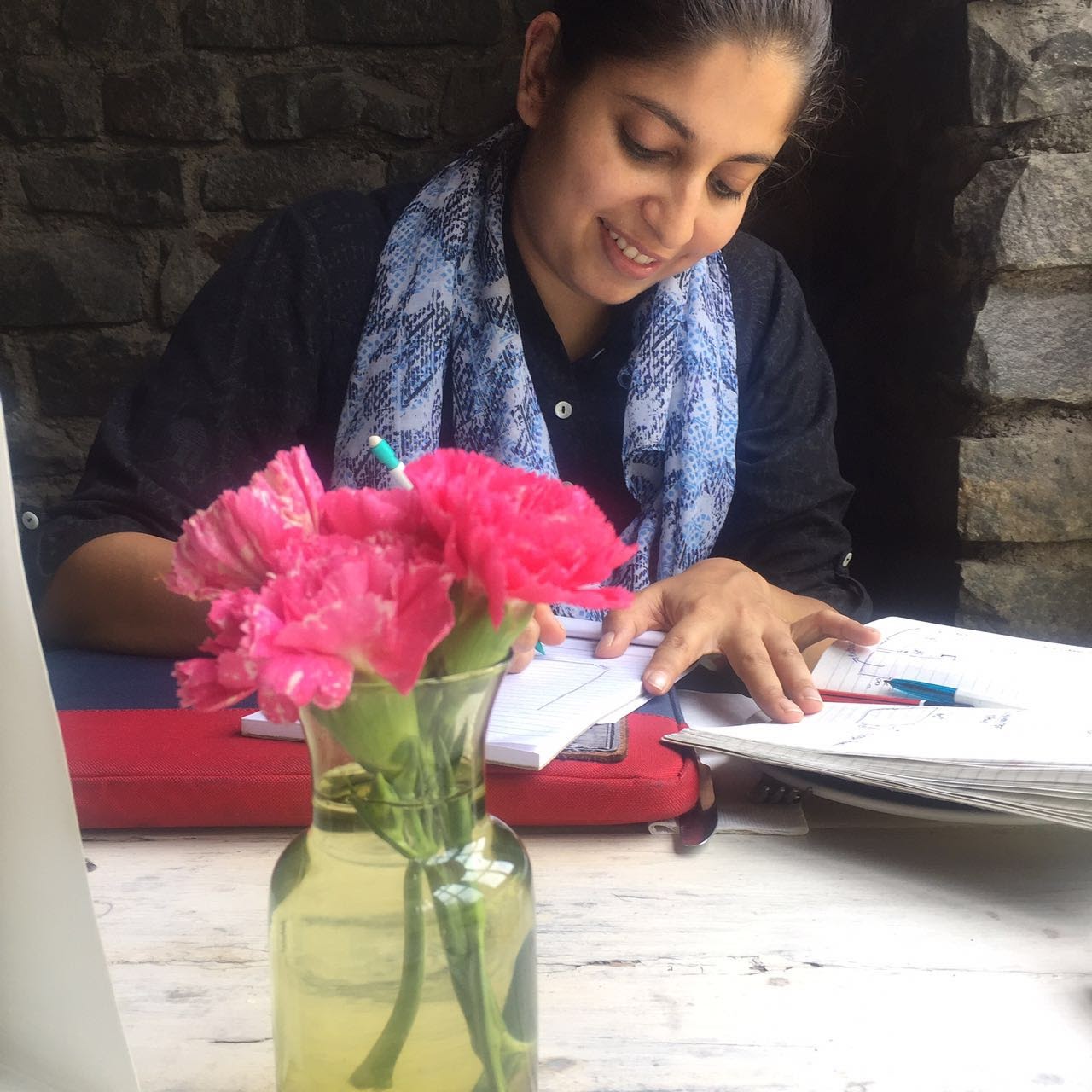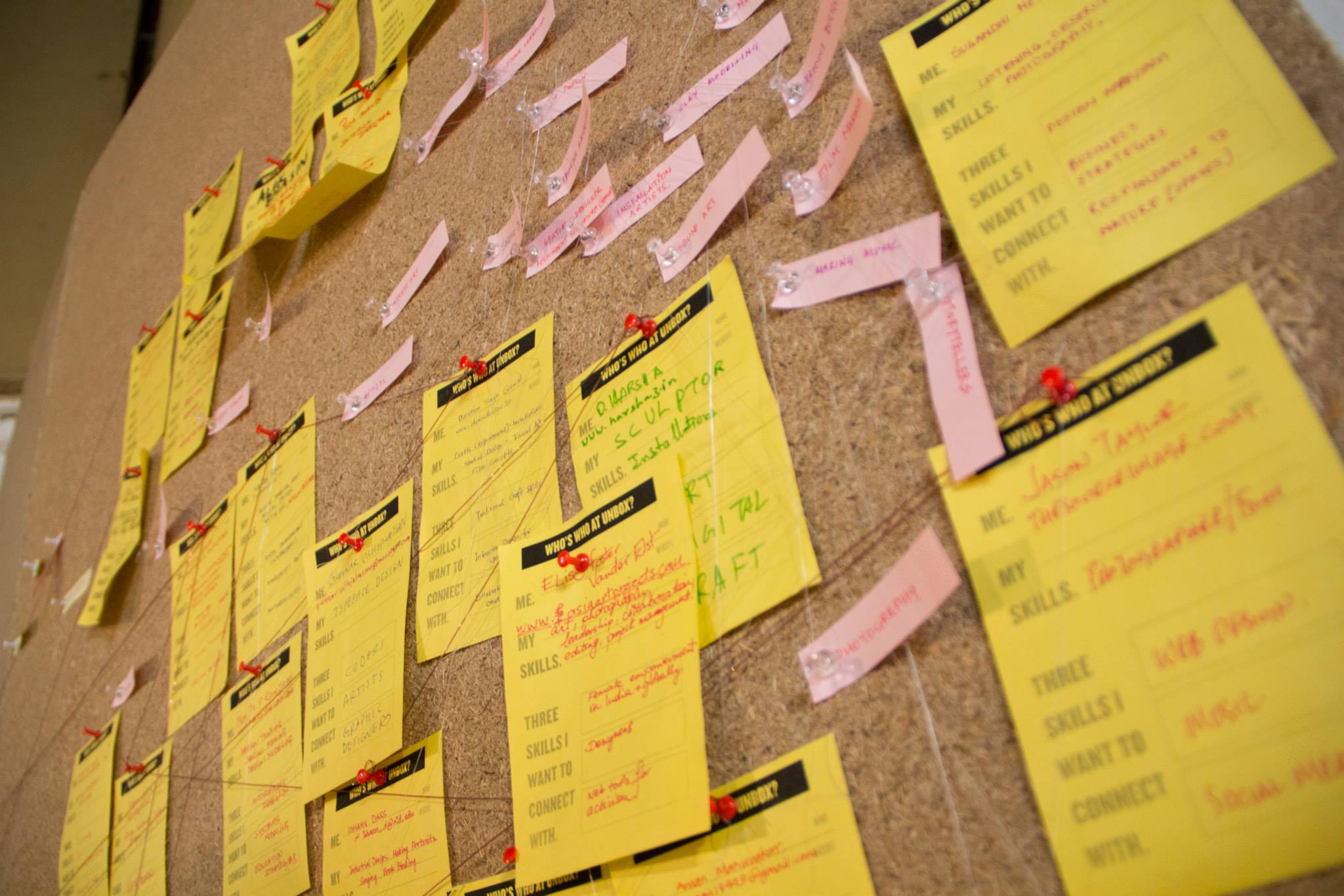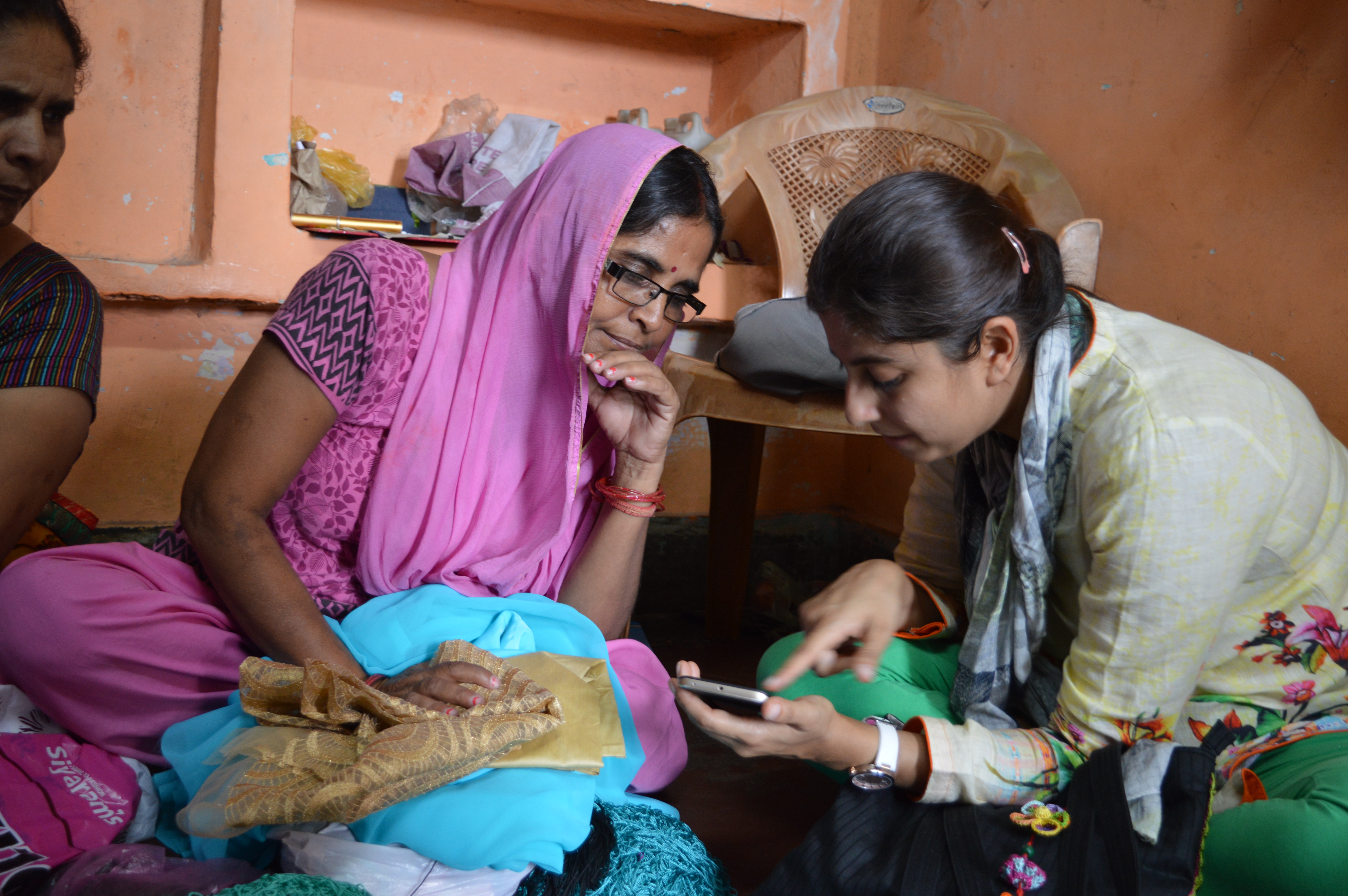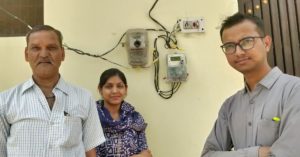How Design Thinking Is Solving Real Problems in Rural Industries
Delhi-based designer Kanika Gupta incorporates Design Thinking into social enterprise, and comes up with some wonderful results.

Delhi-based designer Kanika Gupta incorporates Design Thinking into social enterprise, and comes up with some wonderful results.
“Design today doesn’t just mean you’re designing something pretty — it also needs to solve a problem,” Kanika Gupta says by way of introduction. In doing so, she summarises the ethos of her design company, Izel Homes.
While it is an innovative commercial venture, Kanika began Izel Labs as a subsidiary that would enable her to work on projects for community development.

Travelling across rural India as a fresh graduate, Kanika became increasingly aware of problems faced by the country’s handicrafts industry, and she decided to use her professional training in design to work for a cause. But people often find it difficult to understand her work.
Explaining it as simply as she can, she says that she used her skills and experience as a designer to analyse problems faced by local businesses and makes improvements using design techniques. Some of her work involves sitting with craftsmen who have followed a system of product development for years but are now struggling to compete in current markets. Kanika studies their work processes, explains what isn’t working and helps them use their skills to create feasible products. While Izel Homes takes up purely commercial design projects, Izel Labs became a platform through which Kanika was able to take up different community development projects and find ways of improving existing structures.
Today, Izel Labs works on a collaborative model, bringing experts from different industries to a common table to brainstorm on how best their combined efforts can tackle an issue.

“Izel Labs became a project for things I felt strongly about,” Kanika says. “There are a lot of self-initiated projects under this. As urban people, we are so far away from the ground reality. At the end of the day, if we just look at numbers, far more people live in villages than cities. Even in the cities, the problems are very different. Travelling to Jharkhand was a big eye opener for me. I said to myself, this is it. There is really no money in a venture like this. It’s a false notion that we can help society and still fill our pockets, but rather than put my social ventures on a back burner, I tried to make both feasible and worked on Izel Labs side-by-side.”
Consequently, she launched Advika, a project to assist the handicrafts industry in Jharkhand. During her trips, Kanika noticed that the bamboo products being made by the state’s semi-skilled craftspeople were fast becoming redundant and were unable to compete with plastic alternatives, or products better designed to suit global tastes. “I worked with a couple of craftsmen to make their products more viable for urban and rural needs,” she says. “We designed storage boxes, wall clocks and furniture pieces.”
The Method

Design thinking is San Francisco-based firm IDEO’s human-centred approach that focuses on functional, yet aesthetic, design. With Izel, Kanika follows a similar school of thought. Her process involves using design as a problem-solving tool and to her, the possibilities are endless.
Her time in London, both as a student at Central Saint Martins College of Art and Design, as well as an intern after, opened her eyes to the potential smart design had in multiple industries. The design thinking approach has been lauded by many, most notably PepsiCo CEO Indra Nooyi. She discusses how important it is to ‘force the design thinking way back in the supply chain’ when dealing with fast-chasing markets and niche consumer demands.
Kanika couldn’t agree more. “The process says design can solve a problem if you start looking at the people who are facing the problem,” she explains. “This makes it a qualitative rather than quantitative approach.”
While the trend seems to have caught on over the last five or six years abroad, it is only now that businesses in India are beginning to recognise its value. As a result, firms offering this approach are still considered niche experts in the Indian setting.
“In India, you do have Turian Labs,” Kanika says, referring to the NID and IIT alumni-founded, design thinking and business innovation consulting company in Pune. “They’re going to business organisations and introducing them to design thinking. The value of recognising it is amazing. And there are plenty of individual designers who come up with innovative products without officially calling it design thinking.”
Advika recognised that handicraft-making was the second largest occupation in India after agriculture and so structured it’s techniques to enable artisans to develop products that were commercially viable, allowing them to provide for themselves with sustainable incomes.
The work for the project, like all of Kanika’s undertakings, involved solid research so that tribal crafts were understood, production and distribution systems assessed and workshops designed accordingly. Advika empowered artisans across Jharkhand and turned into an extended craft initiative that continues to work with NGOs to assist craftspeople in developing new products for the market.
But the Delhi-based designer’s work didn’t end there. Kanika continued in the same vein, assisting the NGO Ananya Foundation in training women in urban villages to sew and Samoolam Crafts to create international products for urban markets. The latter focused on the crochet craft in Bihar.
“We need to constantly look at our problems through different lenses,” she reiterates. “I started Izel Labs in 2011 and Advika in March 2011. Since then I have been picking up projects constantly.”

Her latest social initiative is called Kadi, which means ‘link’. In collaboration with the Three by Three design studio and Samoolam Crafts, the project began about a year ago when a proposal was drawn up. It recognises how a large number of craftswomen who work from home are unaware of the real value of their creations in the marketplace and are frequently exploited by middlemen. Kadi seeks to create multimedia tools that will connect these artisans with the industry, thereby empowering them.
“Right now we’re in the process of applying for grants,” Kanika says. “We’ve also identified the first cluster of women we are going to work with.”
Kadi has taken Kanika and her colleagues to Tughlakabad, an urban village in Delhi where around 400 women work in networks within muhallas or colonies.
Despite the progress she has made, Kanika admits her biggest hurdle is a matter of social perception. “It’s difficult for people to actually understand how design can help solve problems at all. In India, design means ‘fashion’ or ‘interior decorating’. I’m working against restricting what we can accomplish by exposing more people to what design can do.”
You can contact Kanika at [email protected] or visit the Izel Labs website here.
Like this story? Or have something to share? Write to us: [email protected], or connect with us on Facebook and Twitter.
NEW: Click here to get positive news on WhatsApp!
This story made me
- 97
- 121
- 89
- 167
Tell Us More
We bring stories straight from the heart of India, to inspire millions and create a wave of impact. Our positive movement is growing bigger everyday, and we would love for you to join it.
Please contribute whatever you can, every little penny helps our team in bringing you more stories that support dreams and spread hope.



















